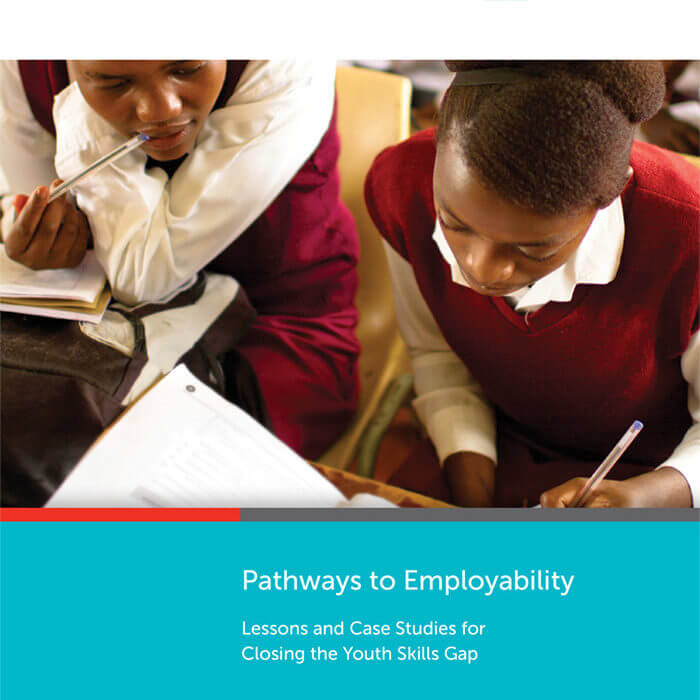The Innovative Secondary Education for Skills Enhancement (ISESE) project, supported by the Rockefeller Foundation, identified the skills required for work in the 21st century economies of Africa and Asia, and to explore innovative models of delivering these skills to youth of secondary school age. The core of the project was a series of 12 background studies, available to download at the link above. Produced in partnership with regional partners, these explore a range of issues related to skills, education, and economic development in 12 focus countries across Africa and Asia.
Our synthesis of these studies revealed that, while technical and basic cognitive skills are still important in the workplace, transferable and non-cognitive skills such as communication, problem-solving, punctuality, and flexibility are increasingly important. Crucially, these skills are not, for the most part, sufficiently emphasized in existing curricula and pedagogy. Importantly, non-cognitive skills are also much more important for the informal sector than previously realized. Further, while there are some regional and sectoral differences, these are not as important as the broader findings. We also identified some common key elements of successful skills development models, including multi-stakeholder partnerships, updated pedagogy, and innovative financing mechanisms.
Following this initial research, the second phase of the ISESE project identified exactly how these models address the critical skills gap identified in our background research, and how they could be potentially scaled up or replicated to increase workforce readiness. With this in mind, we selected six successful models—four from Asia and two from Africa—and conducted a deep-dive study on each, looking at factors such as program design and goals, context, cost, sustainability, and impact. One important finding is the need to engage multiple stakeholders to solve the youth skills problem. Locally-based partners are also crucial to adapting a program to a new context, while collaboration with local policymakers benefits programs pursuing scale and can also lead to systematic reforms.
Copies of both the Phase I and II papers are available for download. For further information or a hard copy, please contact Shubha Jayaram.














